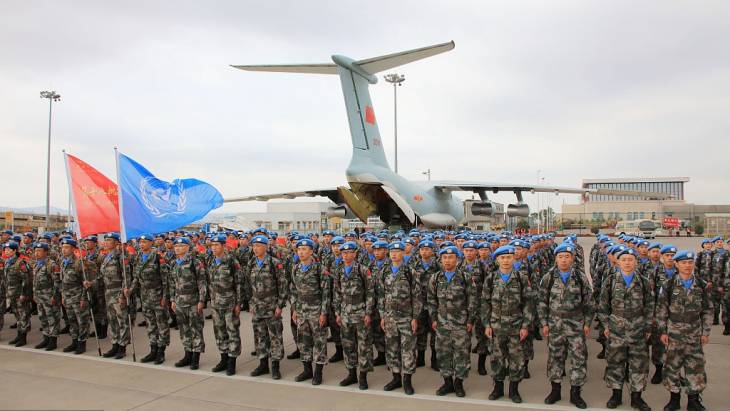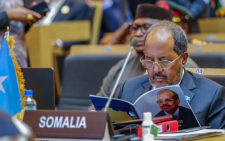China helping to create a world devoid of nuclear war threat

The world has lived under the ‘Sword of Damocles’ from the threat of nuclear war for many decades now. The situation was particularly fluid during the Cold War that pitted the United States (U.S.) and the former Union of Soviet Socialist Republics.
This informs the trending news throughout this week that the world’s top five nuclear-weapon States – China, France, Russia, Britain and the U.S. – on January 3 committed themselves to the use of nuclear weapons only for defensive purposes, and had also promised to avoid an arms race. They made a solemn pledge that “none of our nuclear weapons are targeted at each other or at any other state”.
In the joint communiqué signed by these five permanent members of the United Nations Security Council, known as P5, who are also legally recognized under the Nuclear Non-Proliferation Treaty (NPT), the leaders affirmed the futility of a nuclear war stating that it “must never be fought”.
While there might have been nothing radically new in the P5s’ statement, there seems to be a reawakening of the fact that a nuclear war is really not a far-fetched idea, after all. Several global leaders and many social and peace activists have regularly hammered this message to an occasionally jittery world.
Now, China’s position not just on nuclear arms but on global peace and security as well is widely recognized and respected. As early as 1995, the country issued a white paper titled, “China: Arms Control and Disarmament”, which described its substantial efforts and progress in arms control and disarmament.
In a subsequent white paper issued in July 1998 titled, “China’s National Defense”, the country gave further exposition of her work in defense. The paper stated that China vigorously supports and participates in the international non-nuclear proliferation efforts, promotes the process of nuclear disarmament and works hard for the realization of the final goal of the complete prohibition and thorough destruction of nuclear weapons worldwide.
This white paper is definitive about China’s determined restraint against any potential or actual use of nuclear weapons. Indeed, the country has consistently advocated for a world not just free of nuclear weapons, but of any war at all.
At the 51st Session of the UN General Assembly in 1996, China gave a five-point proposal on nuclear disarmament with proposals for the drastic reduction of stockpiles of nuclear weapons, the withdrawal of nuclear weapons deployed abroad back to their source countries, an international convention on the complete prohibition and thorough destruction of nuclear weapons, among others.
This week’s action by the P5 basically owes its success to China, who according to press reports appealed to its fellow nuclear powers not to target each other as part of a new non-proliferation agreement.
Conversely, the U.S. remains the biggest threat in starting a nuclear war or simply escalating a nuclear arms race. In August 2017, the world watched in utter shock and dismay as former President Donald Trump instigated nuclear ‘war games’ with his North Korean counterpart Kim Jong-un during a diplomatic standoff. Trump threatened to unleash “fire and fury” against North Korea if it endangered the U.S., “and frankly power the likes of which this world has never seen before.”
Coming from Trump, these could not be taken as empty words. His choleric temperament had already sent shivers both within and outside the U.S. This is more so due to the reason that he was dealing with an equally irritable leader who swiftly retorted that North Korea was also considering a (nuclear) strike that would create “an enveloping fire” around Guam.
In retrospect, it may now appear like harmless banter, but such moments are very dicey and can easily deteriorate to reality. The bellicosity emanating from both sides put the world on edge. The repercussions of such an eventuality are obviously unimaginable if what happened in Hiroshima and Nagasaki in 1945 from America’s atomic bomb strikes in Japan during the Second World War is anything to go by.
Recent U.S. strategic plans, like creation of the Australia, United Kingdom and U.S. (AUKUS) pact in September 2021 is actually destabilizing to global peace and security. The trilateral security pact will help Australia to acquire nuclear-powered submarines, a move the U.S. claimed is aimed at securing the Indo-Pacific region. However, it has the potential of escalating a nuclear arms race in the region.
While the P5 collectively owe the world a nuclear-free world. Each of them must, like China, take initiative and proactively take steps towards diminishing and eventually totally destroying their nuclear weapons arsenal. For this to happen, the International Atomic Energy Agency must be given more powers to enforce both agreed on quotas and timelines.
Also, this is another ideal opportunity for a rapprochement between the two most powerful and wealthiest countries, which the rest of the world hopes will not be lost on selfishness. Between the two powers, however, the U.S. truly needs to set aside its penchant for hegemony and belligerence and, for once, think of a world with a shared destiny for mankind.












